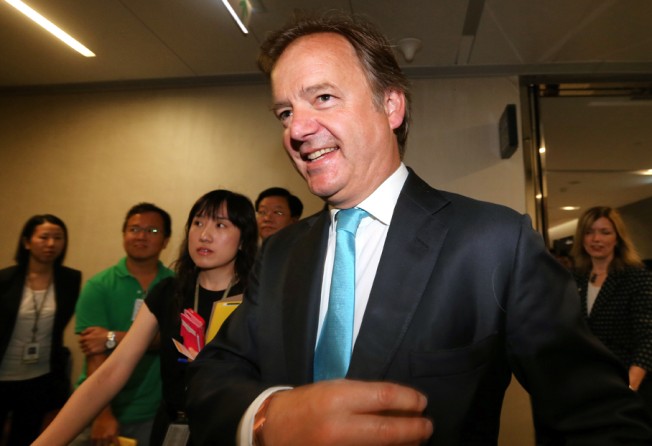Hong Kong's road to universal suffrage is paved with contradictions
Frank Ching says the uproar over British official's comment shows the complexity of Hong Kong's political development, now and in the past

British Minister of State for Asia Hugo Swire set off a firestorm with his article voicing support for universal suffrage. On one level, it does seem hypocritical for a British official to say that "Britain stands ready to support" Hong Kong's move towards universal suffrage when, in fact, Britain obstructed democratic development when Hong Kong was its colony.
Indeed, until Britain agreed to return Hong Kong to China, there were no elections to the Legislative Council. So it is somewhat contradictory for Britain today to depict itself as a champion of democracy. But then Hong Kong is full of contradictions.
In fact, China itself is on rather delicate ground when its foreign ministry, in response to Swire's article, asserted that "Hong Kong once suffered under colonial rule for a long time".
It is unclear to what period of time the ministry was referring. Historically, the British colony provided safety for Chinese fleeing political turmoil or tyrannical rule on the Chinese mainland for over a century. Revolutionaries like Dr Sun Yat-sen, wanted by the Manchu government for attempting to overthrow the dynasty and establish a republic, were safe in Hong Kong, precisely because it was under British administration.
Even communist agents made use of the British presence to operate in the colony, where they were beyond the reach of the Kuomintang government.
And just as British Hong Kong provided refuge to communists before 1949, after the establishment of the People's Republic it offered a haven to those who wished to flee communist rule.
Many of the people now praised as patriots by the communist government are in Hong Kong because their parents fled from the communists. The shipowner Y.K. Pao moved from Shanghai to Hong Kong on the eve of the communist takeover and, ironically, subsequently forged a special bond with Deng Xiaoping . Another shipping magnate, C.Y. Tung, the father of Hong Kong's first chief executive, Tung Chee-hwa, was also a refugee from the Chinese communists.
The list is long. In fact, the majority of the residents of the special administrative region are here because their parents or grandparents couldn't stand the idea of living under communist rule. Suffering "under colonial rule" was evidently considered a much better alternative to life in the communist paradise being created by the party.
Last year, a boatful of Hong Kong political activists landed on the Japanese-administered Diaoyu Islands to assert Chinese sovereignty. The Japanese media depicted them as pro-China activists but many are not even allowed to visit the mainland because, in Beijing's eyes, they are not patriots.
But, of course, it is possible to be a Chinese patriot as well as anti-Communist at the same time. It is important to keep this in mind, at a time when Beijing is insisting that any chief executive hopeful must be a patriot. Let's also remember that Hong Kong's democrats, often accused of being unpatriotic, were the first to welcome the return of the British colony to Chinese sovereignty.
Hong Kong is a bundle of contradictions, almost as contradictory as "one country, two systems".
Frank Ching is a Hong Kong-based writer and commentator. [email protected]. Follow him on Twitter: @FrankChing1